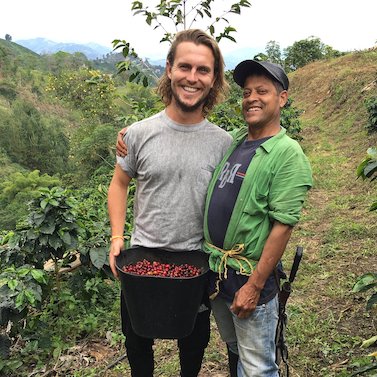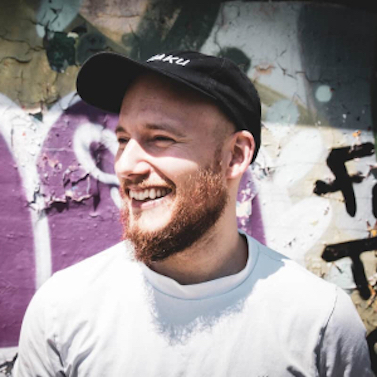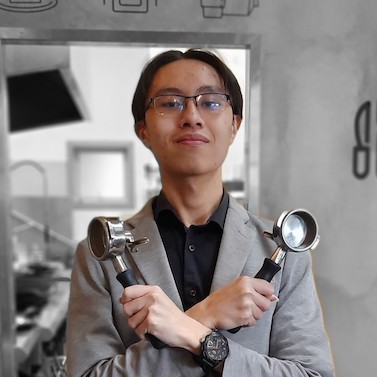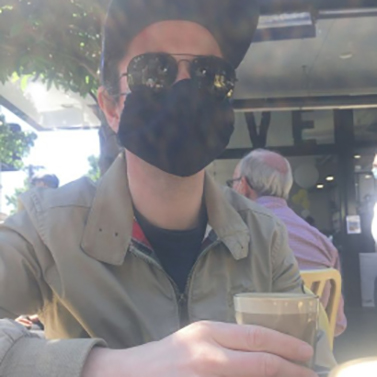What coffee brewing mistakes do beginners make?

Tom Saxon
Table of Contents
3 Beginner Mistakes to Avoid
Coffee brewing is as simple as mixing water (usually hot) with ground coffee and then consuming the liquid with dissolved coffee compounds. There are, of course, a few things between just throwing water onto coffee and drinking the resulting brew that make the coffee taste better. You can take coffee brewing as far as you like.
At the extremely precise end of [brewing] is the measurement of every variable from the exact temperature of the water, the coarseness of the grind, the brew time and ratio, the ambient temperature, and other factors. However, you can usually get a pretty good brew if you take into account a few of these factors and try to keep them as consistent as possible.
Here are some of the mistakes that I see every day when beginners start to brew their coffee at home:
• When people start to brew coffee as either a pour-over, AeroPress, or French press, they don’t let the coffee bloom. Pouring a small amount of [water] on the grounds (usually twice the weight of the coffee) and letting the CO2 escape will result in a smoother, less bitter-tasting coffee.
• Another thing that I always notice is that people don’t heat the brewing devices first, which means that heat escapes quicker during brewing and will result in an under-extracted coffee. Whichever method you use, from espresso to french press, it’s always important to preheat the device.
• Beginners also don’t always wet the paper filter first when preparing either a pour-over method, AeroPress, or coffee filter machine. [Wetting it] will not only heat up the filter but also rid the coffee of an unpleasant papery taste.
5 Mistakes Beginners Make Brewing Coffee
Many people cannot commence their day without a cup of coffee because it is such a powerful mood enhancer. We are still mesmerized by the way coffee tastes whenever we go to a coffee shop, and we’ve always fantasized about brewing coffee perfectly, just like baristas. Since practice makes better, avoiding these five blunders can bring you a long way toward making a perfect cup of coffee every time.
Choosing Good Quality Beans
I believe that selecting new, high-quality beans can revolutionize the art of brewing the perfect cup of coffee. If you use aged, stale, or low-quality beans, the coffee can lose its freshness and flavor. As a result, using stale beans is a big no-no! Throw out your old beans and buy the fresh ones from the market.
Getting the Wrong Water to Coffee Ratio
People think it doesn’t matter how much water they add to coffee. But, no. It matters a lot! If you want your coffee to have a rich taste, you need to watch out for the ratio of coffee and water. One-two tablespoons of coffee to six ounces of water is the optimal ratio. You can change the ratio to fit your tastes and preferences but try to keep it similar.
Freezing Coffee Beans
Many people think that freezing the beans will preserve their flavors. No, it’s a blunder mistake! Freezing coffee beans can [cause] the flavorful coffee oils to break down due to the moisture present inside. Store it in an airtight container on your kitchen shelf.
Using Water That is Too Hot
Using the right water temperature is very crucial to give you a satisfactory cup of coffee. If you are using water that is too hot, your coffee can turn out bitter. On the other side, if you use water that isn’t hot enough, you’ll get under-extracted coffee with a bland flavor. 91 to 96 degrees is the ideal water temperature for making the best-tasting pour-over coffee.
Filters
It’s not a good idea to put coffee grounds directly on the paper filter. The extraction process can become slower if the filter is not saturated. You must steep the paper filter with hot water first to make great-tasting coffee. It will make the filter more friendly to the grounds and allow it to work at its best.

Rashika Juneja

Marco Baatjes
Grind Size for Espresso
Brewing coffee, especially espresso, can be tedious when doing it for the first time. The most common mistake people make when using espresso machines is getting the grind size just right for the brewing process. Failure to do so can lead to a bitter-tasting espresso.
Water Temperature for Brewing
One coffee brewing mistake beginners tend to make is not looking up the ideal water temperature for the type of coffee they’re making. Coffees have different temperatures to bring out their best flavors and nutrients. So, knowing this and brewing water at this temperature can make a big difference when you’re making the coffee.

Timothy Woods

Robert Johnson
Reusing Beans
I love a good cup of coffee, and I believe that coffee can make a bad day turn into a good one. However, there are certain things that you need to avoid if you want to savor the goodness of coffee. Reusing or re-brewing beans is okay if it is on the same day.
I have had the unfortunate mistake of re-brewing a two-day-old left beans in the brewer, and it did not end well. Luckily, my health was not compromised, but I learned my lesson. So, make sure that you are using freshly ground or fresh from the container coffee when brewing so as not to experience what I went through.
Always check your brewer to see if there are molds since a brewer is almost always moist. Remember, HEALTH is WEALTH!
Using Pre-Ground Coffee
The biggest mistake that beginners tend to make with brewing coffee is using pre-ground coffee. Coffee grounds lose their freshness within 30 minutes to an hour of being ground. So, using anything that’s pre-ground is going to kill your brew before you even start.
You can have the best coffee machine in the world, but poor grounds will end up [making] a precision-brewed cup of bad coffee. The single most important step you can take to start drinking better coffee immediately, no matter the brew method, is to use fresh coffee beans instead of pre-ground coffee.
Once you use fresh coffee, you can start experimenting with brew methods to see which suits your taste the best.

Shabbir Noor

Andy Lilienthal
Not Buying a Whole-Bean Coffee
One of the biggest mistakes someone can make is not buying whole-bean coffee and grinding it themselves. If grinding at home, that means getting a good grinder. Specifically, an adjustable burr grinder that allows people to tailor their coffee to their tastes. Burr grinders keep grounds in a uniform shape; no pebbles and boulders. You get uniform grinds. The adjustability aspect allows users to make coffee for various methods – from coarse grinds for French presses to fine grinds for espresso or even Turkish coffee. Getting a good grinder is a good first step to great coffee.
Relying Too Much on Coffee Pods
Beginners and avid coffee drinkers alike often don’t put enough thought into the quality of the coffee being produced. Coffee pods are particularly common for those seeking an easy fix for coffee brewing. However, coffee in pods often contains a much lower quality and amount of coffee per pod than a simpler, traditional brewing method. It is important to note that a large portion of the pod is plastic and the cost to the consumer is a relatively low ~$.50 per cup.
Brewing fresh coffee can become much more affordable and enjoyable with a small investment. First, it’s important to consider the amount of coffee being brewed. Too large a batch of coffee may lead to bitterness. Consider the French press, which only allows for 4-6 oz. of coffee per batch to avoid this [problem].
It’s also helpful to think of coffee beans as a seasonal product. They are at their peak of flavor for 12-18 months, meaning you should avoid purchasing single-season coffee products that are older than this, as they are most likely not optimal. Coffee beans should be stored in a dry place between 65-70 degrees Fahrenheit.

Simon Calvin

Devan Cameron
3 Common Coffee Brewing Mistakes
1. Not Measuring the Coffee
I used to dump in a handful of coffee grinds into my french press, fill it with water, and call that coffee. When you don’t measure coffee, you end up with too strong a coffee or too weak a brew and waste precious coffee. Measure the coffee and the water to get a consistently delicious brew each time.
2. Not Grinding Fresh Coffee
A packet of ground coffee can still make a tasty cup of joe, but it won’t stay fresh for very long. This [fact] has to do with an increased surface area of the beans, which makes the coffee go stale faster. Grind your coffee right before serving for the best results or be sure to use pre-ground coffee within the week of purchasing.
3. Adding too Much Cream and Sugar
Believe it or not, coffee has some nice flavors, and when you smother it in cream and sugar, you hide the taste. If you’re drinking poor-quality, gas-station coffee, then cream and sugar may help. For higher quality, full-bodied coffees, you’ll want to keep these additions to a minimum.
Using Freshly Roasted Coffee Beans for Espresso
Using fresh, whole coffee beans is a gospel for coffee aficionados, but there can be an issue with using beans that are too fresh! When beans are roasted, carbon dioxide gas builds up, and this gas is naturally released over time in a process known as “degassing.” It is especially prominent a day or two after the beans have just been roasted.
When making espresso, hot, high-pressure water is forced through the bed of coffee grounds. If you use fresh beans that are still at the peak of the degassing process, the reaction will cause the espresso stream to bubble and froth up. You’ll get an espresso shot with an overly thick crema layer, and most of the time, it will taste frankly unpleasant. It’s best to use coffee beans that have rested for about 5-7 days after roasting.
This [rule] also applies to pour-over coffee, such as using a V60 or a Chemex. However, it is much more prominent in espresso. Pour-over coffee, is a little more forgiving.

Sean Yew

Ahmed Mir
Novice Coffee Brewers’ Bad Habits
There are points to consider when brewing a perfect coffee. Sometimes, beginners are not mindful of some important points in brewing a coffee, so they make mistakes. Beginners usually forget to clean the coffee machine before brewing, they store coffee beans incorrectly, and they use old coffee beans.
Cleaning the coffee machine will remove the stocked brewed coffee on it. The correct way of storing coffee beans is to keep them airtight and cool. Lastly, old coffee beans get oily over time, so it is not ideal to use them for brewing coffee.
Pre-Heat Your Coffee Mug
A lot of beginners tend to underestimate the power of preheating their favorite coffee mug. It’s such a minute detail that can be easily taken for granted, but it can level up a potentially good cup of coffee into a great one. The reason behind it is that a cold mug can absorb and steal the heat away from your hot and fresh coffee the moment they come in contact with each other.
Notice how there are times that the mug feels hot, but your coffee is underwhelmingly warm? That’s because the mug absorbed a lot of the heat. So, just pop your mug in the microwave for a good 15 seconds before you pour your brewed coffee, and you’ll be good to go.

Matthew Paxton

Martin Walker
Don’t Make These 5 Simple Beginner Brewing Mistakes.
1. Using the wrong grind size: For example, using a fine grind for French Press leads to over-extraction, or a coarse grind for espresso leads to under-extraction.
2. Over/Under extracting your coffee: For example, leaving a French Press to steep for too long or not long enough. For a coarse grind in a French Press, it should be left to steep for four minutes.
3. Using a microwave to boil water: It is potentially dangerous and difficult to properly gauge the temperature of the water. Buy a kettle.
4. Re-using coffee grounds: As horrible as it sounds, I’ve heard stories from enough different people to know there’s plenty of people that have tried this. Don’t do it!
5. Buying pre-ground coffee: For the best flavors, always grind your coffee beans just before brewing. Your taste buds will thank you.
6. Bonus Mistake! Using a blender to grind your beans: Not exactly a “brewing” mistake, but a common beginner mistake. It leads to a grind size that isn’t uniform. It’s also difficult to control the grind size. Buy a coffee grinder with different grind settings.
Using Bad Water
When it comes to brewing coffee, you need to remember never to use tap water. The reason is that tap water ruins the quality of the coffee. Water has various mineral contents and a pH that will affect the coffee taste and even the texture.
- Use filter paper or spring water to improve the taste. Consider getting a water filter system that would allow you to get the perfect cup of coffee every time.
- Also, make sure when you’re preparing your coffee the water is hot enough, as it’s really important! Different temperatures will give you a different cup of coffee each time.

Vicky Cano
This is a crowdsourced article. Contributors are not necessarily affiliated with this website and their statements do not necessarily reflect the opinion of this website, other people, businesses, or other contributors.
